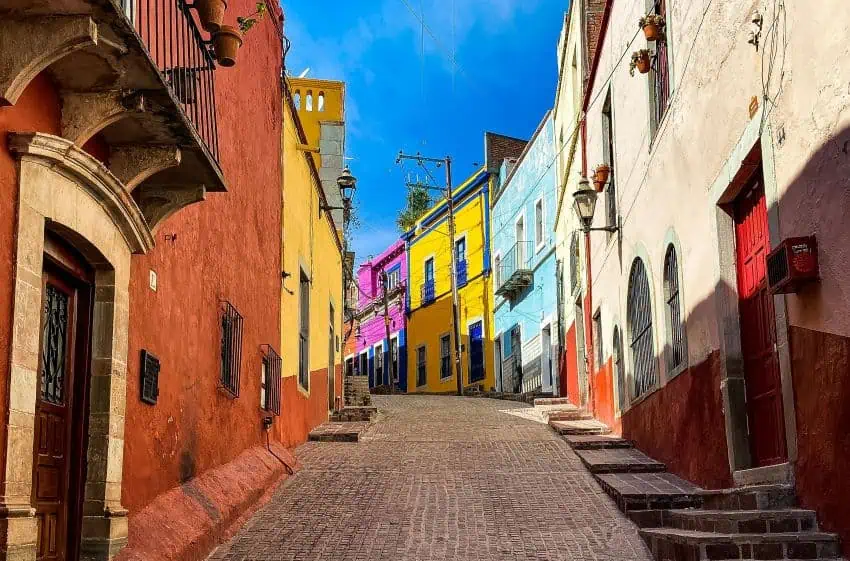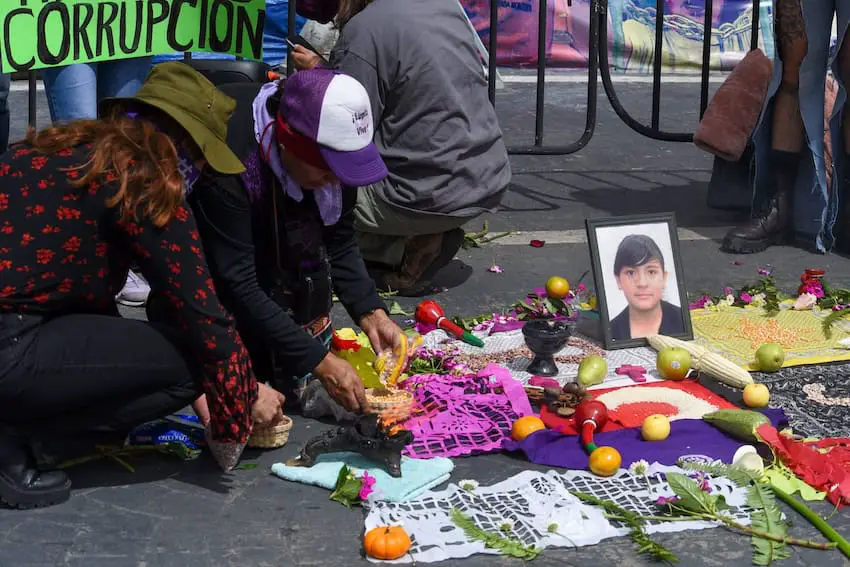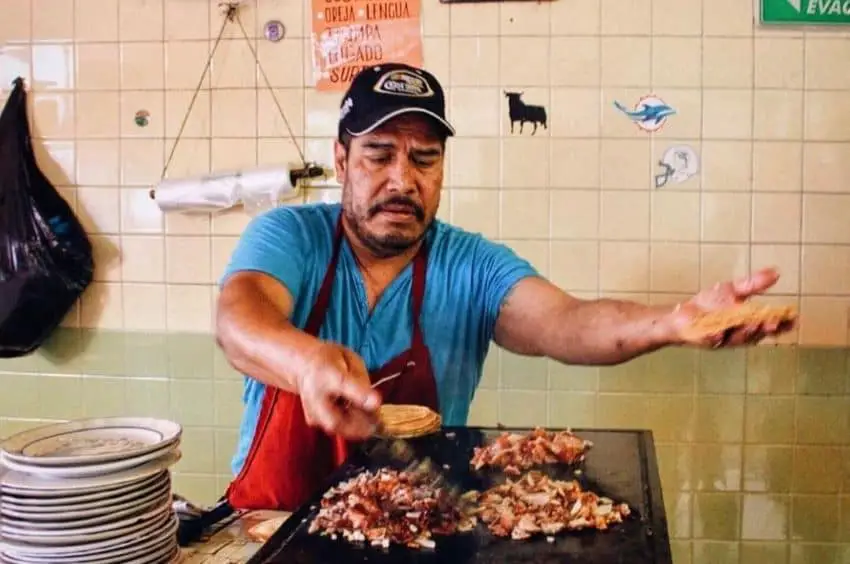It turns out that living in Mexico exposes you to some frequently asked questions by curious acquaintances. While on a recent flight from San Francisco to Chicago to visit my sister, I mentioned to my seatmate, a 40-something accountant, that my husband and I divide our lives between Guanajuato, a city in central Mexico, and Eureka, on California’s North Coast.
“Don’t you worry about the violence in Mexico?” she asked me.

“No, I don’t,” I said. “I mean, I’m careful, of course, to avoid getting robbed. But otherwise no.”
I kept going. “Of course there’s violence in Mexico, but it’s very different than in the States. The chance that I’d be randomly killed in a mass shooting in a Mexican church, school or a Walmart is next to zero.” (To be fair, the chances in the U.S., though higher, are not very high — but the awareness and anxiety among the public as a whole is dramatically more). I went on to explain that narcotraficos mostly target other cartels, rarely tourists.
Frequent concerns about living in Mexico
She nodded, seemingly satisfied by my explanation. I didn’t keep going, because who wants to put up with a lecture on an airline flight? But in case you need data the next time you’re talking to a Mexico skeptic, there’s more: The violence in Mexico is partly caused by U.S. drug policy and ever-growing consumption of illegal narcotics and the half million traced weapons (between 70% and 90%) smuggled into Mexico every year from the U.S.
Mexico has highly restrictive laws regarding gun possession, and it also takes months of paperwork to purchase a gun legally. To my amazement, there are only two gun stores in the entire country, one near Mexico City and one in the northern state of Nuevo León.
Violence in Mexico is by no means the only issue people raise. Some ask questions that sound a bit negative; others appear concerned for me. Here’s how I respond to the most common questions:
What about personal crime?
Mexicans are very security conscious, so people lock their doors and are careful with their valuables, wallets, and credit cards. On our street in Guanajuato we have a Whatsapp group that alerts fellow neighbors if someone looks suspicious.
But there’s a lot of machismo, right?

Yes, unfortunately, and the statistics around violence against women are truly awful. Three percent of Mexican murder victims are classified as femicide, one of the highest rates in the world.
However, the country is unrivaled in its commitment to gender inclusion and equality. In 2019, Mexico passed a constitutional amendment setting a goal of gender parity in elected and appointed senior positions in the judicial and executive branches of government. The chief justice of the Supreme Court, the leaders of both houses of Congress, and the director of Mexico’s Central Bank are all women. There is no other country that has this kind of requirement — and certainly not the United States.
In addition, Mexico just elected its first female (and Jewish) President, Claudia Sheinbaum, who holds a PhD in energy engineering. If Mexico can elect a female president, you’d think the U.S. could.
Are there a lot of homeless people?
There are some homeless people, naturally, but nowhere I’ve visited are they visible. While in the U.S., and especially on the West Coast, homelessness has become the norm, I have never seen a homeless encampment anywhere in Mexico. The reason is that for the most part, Mexico’s poor live in slums, which can indeed be squalid — but some, surprisingly, have electricity. Even a flimsy structure provides a roof, and a slum is more permanent, with a potentially higher quality of life, than a homeless encampment.
Is it crazy hot?
Rarely, but more than in the past. Certain areas can get very hot and humid. Oddly, April and May have higher temperatures than July and August, because summer is the rainy season when, in theory, afternoon thunderstorms cool things off. However, as with everywhere else in the world, the climate crisis has brought extreme heat and drought to cities that are usually just moderately warm. Since houses are rarely air-conditioned, many expats leave in April and May to avoid the heat.
Is the health care affordable?

Absolutely! Long before the Affordable Care Act, Mexico offered several tiers of subsidized health care. All Mexicans have access to universal health coverage, but reliable health care is limited in remote, rural areas. Even when you pay, though, your bill is dramatically less than in the US, not to mention the fact that you don’t have to contend with the Byzantine system of figuring out what you’re paying for and what the esoteric coding means.
Can you get by without Spanish?
Depends on where. In highly touristic areas, yes, but even there, I wouldn’t advise it. Even a few basic phrases go a long way in earning appreciation and respect from Mexicans.
Do you have decent internet?
It’s much better than in Eureka! Our fiber optic in Guanajuato is super-fast, whereas in remote Eureka (five hours north of San Francisco), it’s slower.
Do tourists get sick from street food?

Not if you do what full-time foreign residents do: follow the locals, who not only know which are the tastiest food puestos (stalls), but also the healthiest.
People who don’t know Mexico, or know it only superficially, often ask insightful questions, and can be very interested in an in-depth conversation. Unfortunately, strangers who don’t know me can assume negative things about the country, making me want to sigh inwardly. But since my goal is to help them come away with a better understanding of Mexico, I do my best to answer respectfully. It can be a challenge, but as we say in Spanish, así es.
Louisa Rogers and her husband Barry Evans divide their lives between Guanajuato and Eureka, on California’s North Coast. Louisa writes articles and essays about expat life, Mexico, travel, physical and psychological health, retirement and spirituality. Her recent articles are on her website, https://authory.com/LouisaRogers
